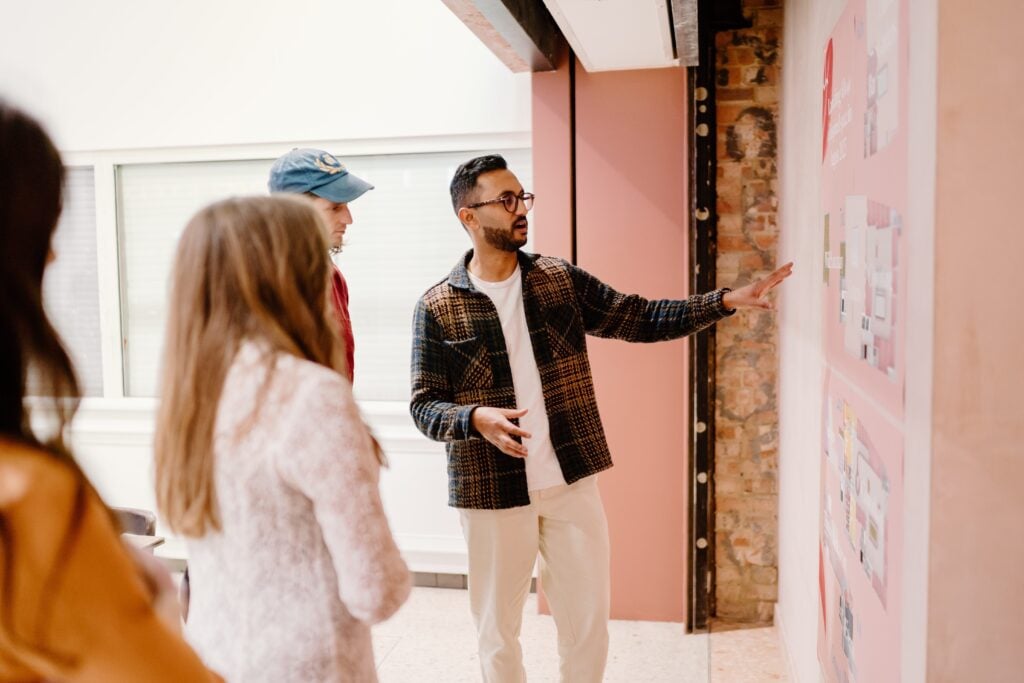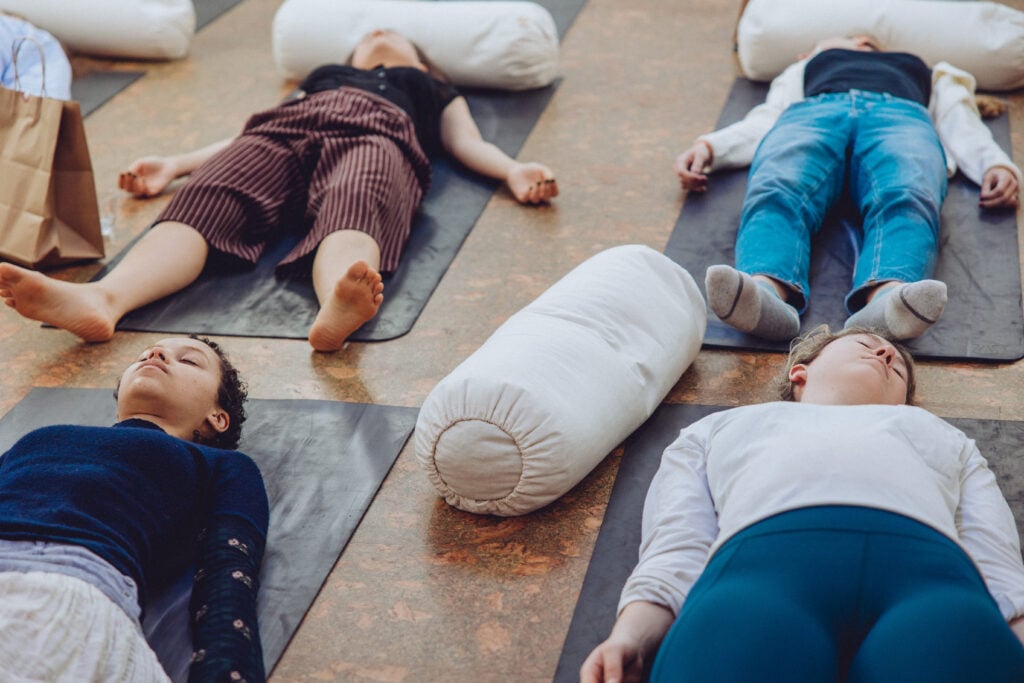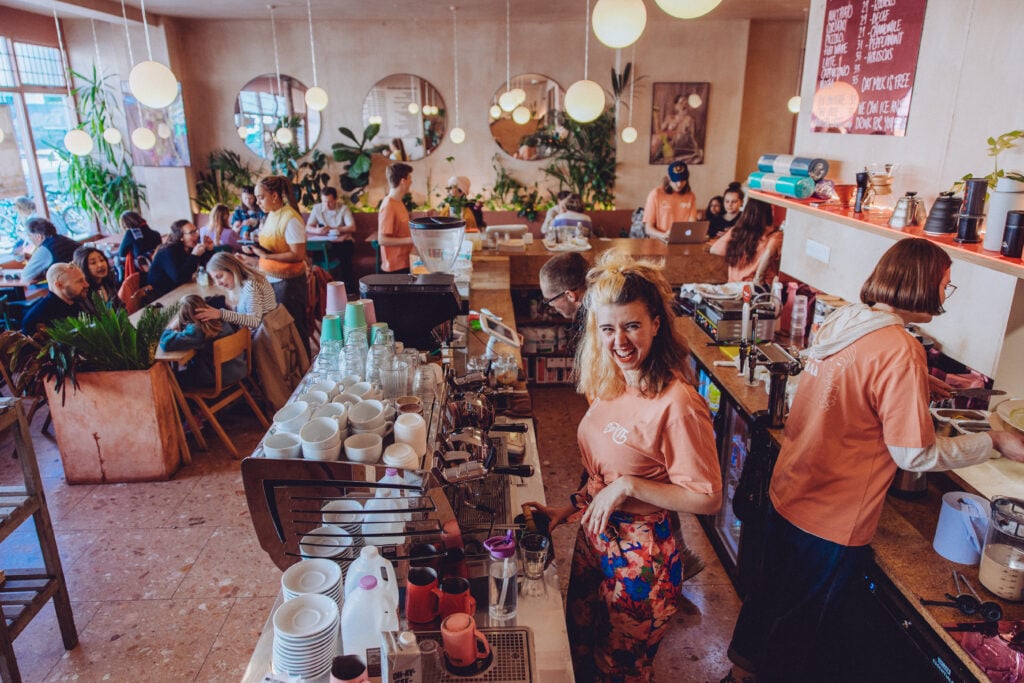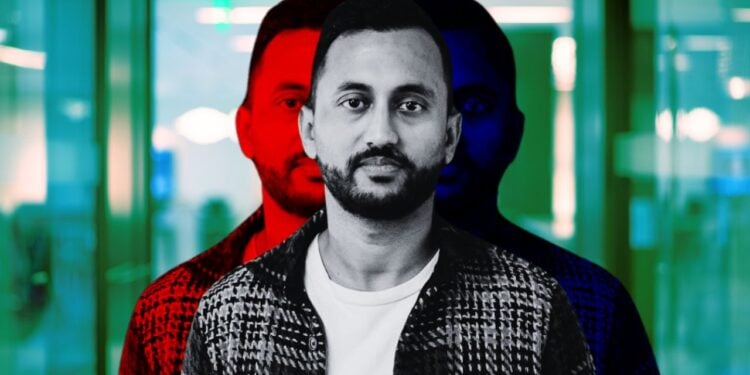- Vibushan Thirukumar, co-founder of Oru, emphasizes the importance of team culture and investing in people as key to the company’s growth.
- Oru combines coworking, wellness, and hospitality, offering a holistic, community-focused approach to operations.
- Thirukumar encourages new operators to embrace uncertainty and organic growth, learning from challenges along the way.
Operating a thriving coworking space comes with a unique set of challenges, wins, and rewards.
Someone who knows this better than most is Vibushan Thirukumar, the co-founder of Oru — two iconic pink high street spaces offering a seamless blend of coworking, hospitality, and wellness, in the South London neighborhoods of East Dulwich and Sutton.
While expressing what worked well and his learnings along the way, Vibushan candidly shares the number one thing he wished he had known at the very beginning.

Lessons in team management
Vibushan proudly leads a 70-person strong team of richly diverse individuals across two sites. But looking back, Vibushan said, “most of my learnings would be about the people and the culture piece.”
He opens up about the period when he and his co-founder, Paul Hepworth Nelmes, worked closely with the team to build Oru East Dulwich.
“You get so close to your team when you’re doing something difficult,” he said.
“I think the biggest lesson for me would be that some people you find out are there long-term, for the journey, but with some people, they’re just meant to be there for a month, a year, or 6 months, and that’s ok.”
Although Vibushan struggled when people left the team, they’re in a good place now, with appropriate resources and processes in place to handle the multiple dynamics within their team. Vibushan believes that “investing in people is really important.”
In the beginning, the co-founders were based at their first site in East Dulwich. Vibushan recounts how leading a core team enabled him and Paul to explain why they did things a certain way and the intent behind them.
However, its increasing popularity (he reports a thousand people walk through the doors each day) and Oru’s expansion to Sutton (taking the co-founders away from the first space) prompted the co-founders to formalize operations across the business.
A holistic approach to operations
“There’s a lot for the team to learn to do their jobs effectively, and we’re better at explaining that now,” recounts Vibushan.
They’ve introduced employee handbooks, and have regular team meetings to explain their intentions as a collective.
“We’re trying to be profit-seeking while investing £30,000 of revenue back into social impact, and building super sustainably. It’s hard to explain it because generally, these are polarised positions in companies…we’re trying to do it all. And it is possible.”
Oru does things differently, he says, which can be challenging for new team members to navigate if they’ve previously worked in confined roles at traditional companies.
For instance, employees can access free wellness classes, “but when you’re customer-facing we’d like you to be professional…and turn people away when they’re a minute late to class because we have a zero-late policy. They have to deal with that outpouring of angst when you’re doing that because we’re community-oriented,” said Vibushan.

Equally, Oru is a combination of sub-brands. But, “the values are the same across them,” expresses Vibushan.
“We try and offer good value, we offer something healthy and holistic…we try and make it look good without looking polished.”
For example, rather than using a marketing agency, their team takes photos making it “feel like it’s our team doing the branding.”
This is part of their authenticity goal, along with how Vibushan openly shares the business P&L and their plans for the team culture with their employees.

A journey of growth
Recently, Oru has significantly increased its portfolio, going from one 6,000-square-foot site in East Dulwich to launching a second. Oru Sutton is a 34,000-square-foot space, with plans to extend by 6,000-square-foot on top.
Both sites include coworking offices, a restaurant, (Trinco, celebrating Sri Lankan cuisine), plus wellness amenities including a spa coming to Sutton, which will soon have a nursery.
What has Vibushan learned from building a second space?
“When you go again, you challenge every decision you made in the past, but then you can skip a couple of decisions,” he says.
They worked with the same lead architect as before, but this time Oru was the main contractor, enabling the co-founders to stay “fairly close to the design…making it an interactive process.”
Expanding to Sutton meant that Vibushan and Paul had to step away from Oru East Dulwich, but they were successful: “Dulwich has gotten busier, more profitable, more impactful. There’s been huge benefits to growing two sites.”
There are also differences between the two neighborhoods, as in Sutton, for instance, “there’s no coworking, yoga studios, real food culture of what we see in Dulwich, Camberwell, and Peckham” (where young professionals tend to reside, Sutton is slightly older). The response to Oru Sutton has been enormous, leading to an “outpouring of emotion” from community members.
Partly, it’s because “every operational bit of Oru is driving social impact,” he explains.
They offer free coworking memberships, and classes to those who need it, and the restaurant sponsors a foodbank, hosting community cook-up events every so often. Oru is widely inclusive — it evokes feelings of belonging through its workspace design, and offerings.
By welcoming a large, mixed pool of people into his spaces, Vibushan hopes it brings society closer together.
Words of wisdom
Oru has experienced huge changes through its growth journey. Vibushan believes in their organic approach to growing Oru alongside the team, partners, and founders, and urges any operators that “not having all the answers when you’re starting something is really good to be comfortable with.”


















